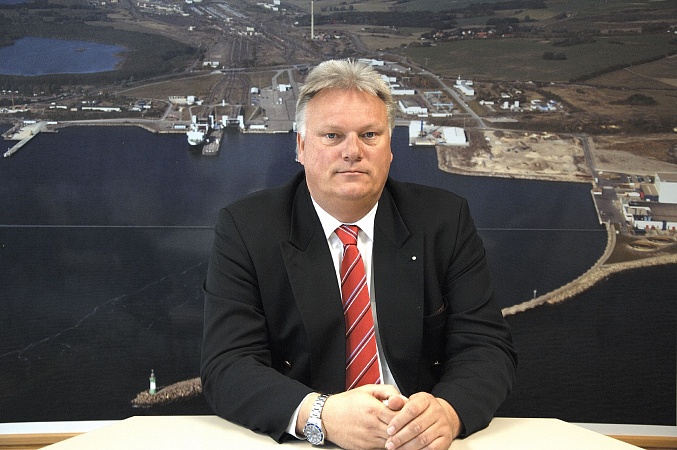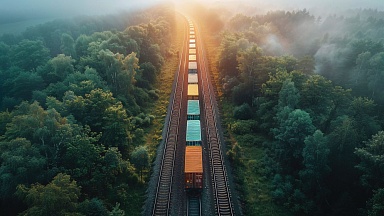He who owns the information, owns the world. Is this adage applicable to logistics?
This applies to logistics as well. A good example of this is the opening of large logistics centres in China. Those who knew about the Chinese economic boom and the economic opening towards the West at an early stage are amongst the winners of our time thanks to this knowledge advantage.
Other examples are the increasingly emerging tools for Track & Trace, ETA, real-time tracking, etc. Companies which offer these tools of real-time information in their services report an increasing number of customers.
We at Mukran Port know well about it. Our Baltic Sea Bridge service operates with a fully digital bill of lading, unlike many other providers. This is an information advantage, which sets our service apart from the others and gives us a clear competitive edge.
In your opinion, what opportunities does the ERAI portal (index1520.com) open up? What is your assessment of the portal’s productivity and usefulness?
I am convinced that the portal will be one of the next important instruments for obtaining information on the transport of goods, especially of course for the route section 1520. I am certain that in the future many relevant business decisions, shipments and transports will take place based on the data presented on the portal.
Does the ERAI portal help to establish dialogue and build trust between consignors and freight companies?
In my opinion, definitely yes. Just by the fact that the same information is available to all market participants, positive as well as negative. On this ground, an open and honest dialogue is possible and common solutions are possible. Therefore, it would be beneficial if the portal would also refer to other sections and routes.
Was the launch of the portal well-timed? What are the current trends on the cargo transportation market?
The launch occurred at a perfect time considering the need for a positive boost to the economy and economic relations, given the current crisis situation. Especially for the Baltic Sea Bridge, the portal is a particularly useful and practical tool.
What are the advantages of transparent tariff formation?
For the development of a cost calculation it is important to know the value perception of the customer as well as the own competitive position. The expected cost and profit margins are further fixed components of the strategic consideration. With a cost estimate tailored to the customer and prepared across departments, companies can ensure a successful appearance with the client.
The coordinated figures and arguments strengthen the own position and negotiations are conducted in a more focused way. Long-lasting price discussions are no longer necessary, because price developments become comprehensible to the customer as well. The actual function and quality of the product are becoming increasingly important.
Digitalization, electronic workflow, blockchain. In what way these processes and technologies are likely to affect logistics services?
The process of digitization brings enormous challenges to the logistics industry worldwide. New technologies which enable digital innovations for the logistics industry are introduced almost daily.
In the context of supply chain digitization, the consideration of horizontal and vertical integration in companies is of utmost importance. Based on Industry 4.0 — the term for a digitized industrial environment — a digitized logistics infrastructure can also be called Logistics 4.0. By computerizing all units involved in a logistics chain, Logistics 4.0 creates the basis especially for flexible positioning in situations such as the corona pandemic, as well as in everyday change.
What can you say about the potential of the New Silk Road routes during the economic recovery period after the crisis caused by the coronavirus pandemic?
It’s hard to predict in advance. Above all it depends on the extent to which the large industrial companies follow their announcements with deeds.
This means in particular that there is talk of a shift in production and supply operations away from China and back to Europe. Of course, this would also have consequences for the demand for transport on the new Silk Road routes.
Currently, all I can say is that we are running at full capacity on our line and yet see potential for more and more traffic.
Is it true that the role of multimodal transport grew during the pandemic?
Definitely yes. Multimodal transport has become enormously important at this stage.
We have observed that sea and air freight capacities have dropped sharply compared to previous months due to the crisis situation.
Especially the large container ships crossed the oceans with only half of their cargo. The shortage of empty containers and the fact that full containers were no longer accepted due to a lack of storage capacity, as well as production facilities shut down worldwide, were the reason for this.



